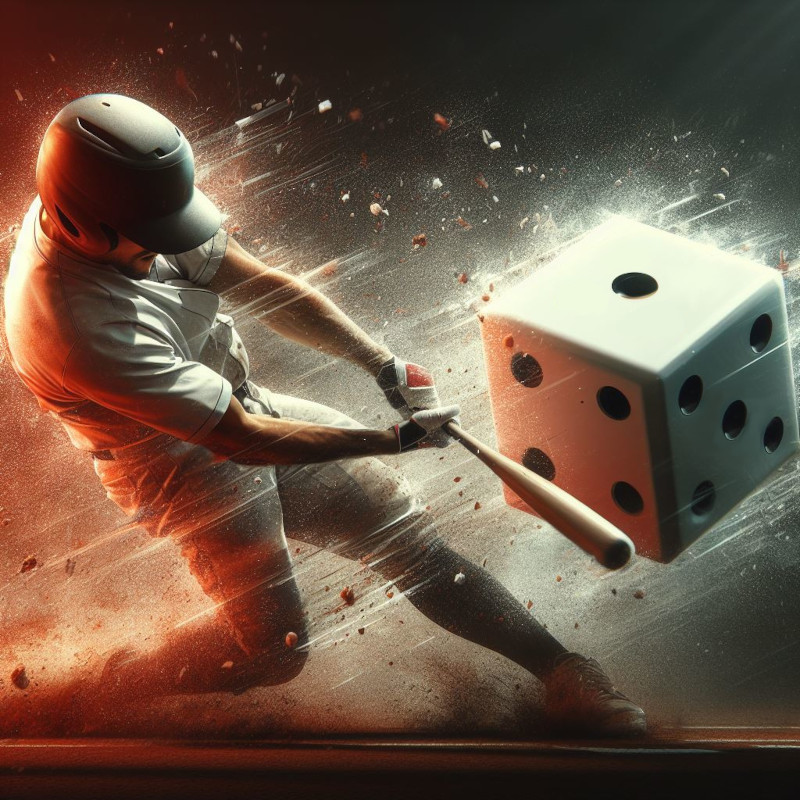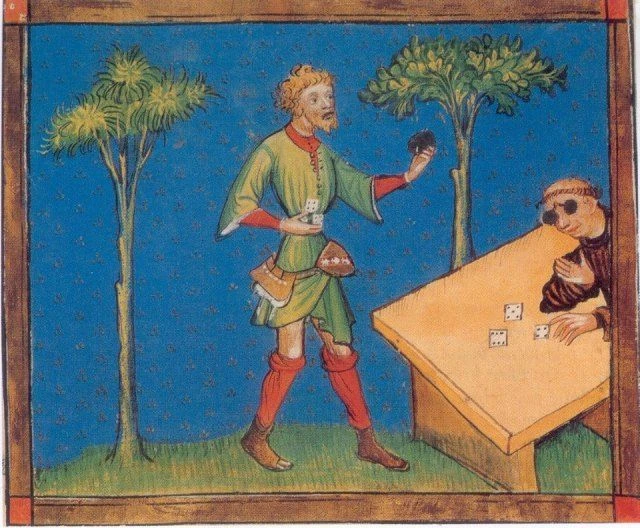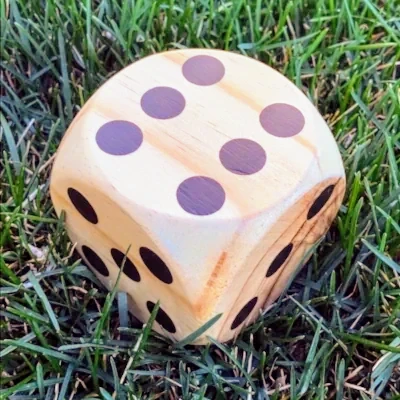World Series of Yahtzee
The World Series of Yahtzee board game offers a unique and competitive twist on the classic dice game, bringing head-to-head action and new scoring mechanics to the table. It's a fast-paced version designed for two players, where strategy and luck combine in a thrilling contest.
Yahtzee and Baseball

Yahtzee and baseball may seem worlds apart - one is a tabletop dice game, the other America’s favorite bat-and-ball pastime - but they share surprising similarities at their core. Both are grounded in probability and statistics, shaped by strategy and streaks of luck. They’re games that unfold at their own unhurried pace, with storied traditions and a deep cultural footprint. Whether it’s the thrill of a Yahtzee or a walk-off home run, the moments that matter most often build slowly, revealing themselves through repetition, rhythm, and risk.
That connection comes full circle in the World Series of Yahtzee, a board game variant that channels the energy of postseason baseball into a dynamic, head-to-head format. For fans of the classic dice game, this version introduces a competitive structure designed for two players, focusing on direct confrontation and strategic scoring within a limited number of rounds. It breaks from the traditional turn-based playstyle, emphasizing simultaneous rolls and a fast-paced race to lock down high-value scoring categories.
Like a playoff series, the game captures the excitement of championship play by rewarding quick thinking, bold decisions, and sustained pressure. It’s a streamlined and engaging take on Yahtzee that appeals to players who enjoy a more interactive and competitive experience. While traditional Yahtzee is beloved for its simplicity and solo strategy, the World Series of Yahtzee offers a fresh challenge rooted in the same mathematical elegance, with a distinctly modern edge. Let’s dive into what makes this variant stand out.
World Series of Yahtzee Gameplay

The World Series of Yahtzee was launched in 2012 and expanded to a worldwide release in 2013, accompanied by a companion mobile app. This version of Yahtzee brought a fast-paced, head-to-head twist to the classic game, introducing new mechanics and a more competitive format.
Unlike traditional Yahtzee, where players take turns aiming for high scores over 13 rounds, World Series of Yahtzee features simultaneous dice rolling. Both players roll at the same time and race to claim scoring categories, adding urgency and real-time decision-making to the experience. The goal shifts from maximizing points to being the first to complete specific scoring objectives on a visual "Scoring Tower."
One of the game's signature innovations is the use of Power Dice. These special dice introduce strategic abilities - such as changing a roll, rerolling specific dice, or even stealing a category from your opponent. These mechanics add layers of strategy and can lead to dramatic shifts during gameplay.
![]() Gameplay Objective - In classic Yahtzee, players work individually to fill out their scorecards over multiple turns. In contrast, World Series of Yahtzee is a direct duel where players compete to be the first to fill their side of the Scoring Tower with pegs by claiming categories.
Gameplay Objective - In classic Yahtzee, players work individually to fill out their scorecards over multiple turns. In contrast, World Series of Yahtzee is a direct duel where players compete to be the first to fill their side of the Scoring Tower with pegs by claiming categories.
![]() Simultaneous Play - This real-time format makes the game much more interactive and fast-paced. Players must make quick decisions on category selection and how to best use their Power Dice.
Simultaneous Play - This real-time format makes the game much more interactive and fast-paced. Players must make quick decisions on category selection and how to best use their Power Dice.
What’s in the Box
- 20 Colored Dice
- 22 Game Cards
- 1 Electronic Unit*
- 1 Game Board
- 4 Barriers
- Game Guide
Batteries not included!
![]() Scoring and Categories - While familiar categories like Full House and Yahtzee remain, scoring is now based on claiming category slots on the Scoring Tower. Players can also aim for "Yahtzee Streaks" - multiple Yahtzees in a row - which are key to victory and encourage more aggressive play styles.
Scoring and Categories - While familiar categories like Full House and Yahtzee remain, scoring is now based on claiming category slots on the Scoring Tower. Players can also aim for "Yahtzee Streaks" - multiple Yahtzees in a row - which are key to victory and encourage more aggressive play styles.
![]() Introduced Elements - The addition of Power Dice and the Scoring Tower dramatically changes the game's flow. These elements introduce tactical decisions, letting players manipulate rolls or interfere with their opponent’s progress, and provide a visual race-to-win component.
Introduced Elements - The addition of Power Dice and the Scoring Tower dramatically changes the game's flow. These elements introduce tactical decisions, letting players manipulate rolls or interfere with their opponent’s progress, and provide a visual race-to-win component.
![]() Player Interaction - Interaction is much more direct and competitive in World Series of Yahtzee. Simultaneous rolling and shared category competition create high-stakes tension and opportunities for strategic sabotage using Power Dice.
Player Interaction - Interaction is much more direct and competitive in World Series of Yahtzee. Simultaneous rolling and shared category competition create high-stakes tension and opportunities for strategic sabotage using Power Dice.
![]() Pacing and Length - The game’s real-time format and rapid scoring system make matches quicker and more intense. It’s ideal for players seeking a fast, action-oriented alternative to the classic game, with the potential for quick rematches and tournament-style play.
Pacing and Length - The game’s real-time format and rapid scoring system make matches quicker and more intense. It’s ideal for players seeking a fast, action-oriented alternative to the classic game, with the potential for quick rematches and tournament-style play.
A New Take on an Old Classic

Yahtzee board game?
The World Series of Yahtzee board game successfully reinvents the classic Yahtzee experience by injecting a strong competitive element and faster gameplay. It retains the core dice-rolling mechanics that make Yahtzee so addictive, while adding features like Power Dice and the Scoring Tower to create a distinct and engaging head-to-head challenge.
This version caters to players who enjoy direct interaction and a race to victory, rather than simply aiming for the highest score. The simultaneous rolling keeps all players engaged throughout the game, minimizing downtime and maximizing excitement. It’s a testament to the versatility of Yahtzee that it can be adapted into such a different yet equally enjoyable format.
Whether you're a long-time Yahtzee enthusiast or new to the game, the World Series of Yahtzee offers a refreshing and competitive way to enjoy the thrill of rolling dice and strategizing for those elusive combinations. It's a worthy addition to any game night, providing a fun and intense experience that is both familiar and distinctly new.
More Yahtzee Variations
Discover more ways to play Yahtzee:





